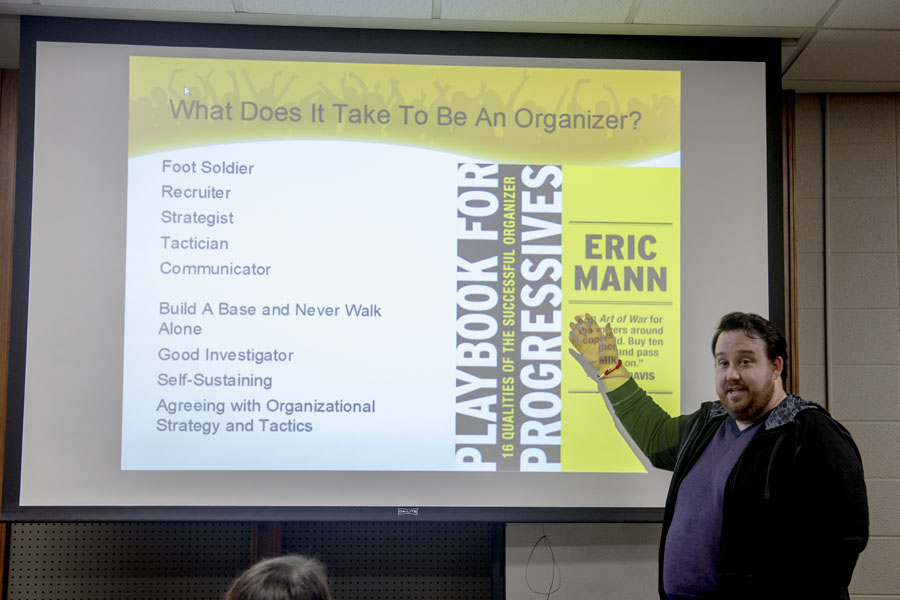From time to time all of us who are organizers need a refresher course to polish our skills and the QCDSA Organizing 101 Training on February 9th, 2019 led by QCDSA Chair AJ Reed did just that. From asking basic questions like, “What if we had a $15 minimum wage,” to exercises in what we want our society to look like, the training covered many questions organizers ask themselves when getting started.
 In getting started, AJ asked the group to list things that we wanted in a society. As we listed them they went around and crossed out some of each group’s choices as an example of those in power taking things away. Afterwards, they asked what we could have done to prevent them from crossing out our choices. This was to illustrate that we as a group don’t always realize we have the power to stop our choices from being taken away. This lead into AJ’s lesson about power. People in power want to take resources away from the people so people must organize to create power in order to create an equitable society.
In getting started, AJ asked the group to list things that we wanted in a society. As we listed them they went around and crossed out some of each group’s choices as an example of those in power taking things away. Afterwards, they asked what we could have done to prevent them from crossing out our choices. This was to illustrate that we as a group don’t always realize we have the power to stop our choices from being taken away. This lead into AJ’s lesson about power. People in power want to take resources away from the people so people must organize to create power in order to create an equitable society.
AJ made the statement that when people feel they don’t have power, it’s the job of organizers to make them feel that they have power. This lead us into the backgrounds of two organizers – Jane Addams who created Hull House in Chicago that provided many services in order to organize people and Saul Alinsky who wrote “Rules for Radicals.”
 After some discussion about what organizing is, we covered what it is not. These subjects include: Political Campaigning, Legal Action, Social Services, Activism and Advocacy, and Movement Building. Community organizing is building power and identifying problems. As they say, the personal is political.
After some discussion about what organizing is, we covered what it is not. These subjects include: Political Campaigning, Legal Action, Social Services, Activism and Advocacy, and Movement Building. Community organizing is building power and identifying problems. As they say, the personal is political.
AJ then recommended another book for organizing called, “Playbook for Progressives,” by Eric Mann. After discussing some topics in the book we moved on to knowing your vowels for organizing: A for Agitate, E for Educate, I for Inoculate, O for Organize, and U for Unite. AJ said to be cognizant that the people you’re organizing all understand why these are important.
Finally before going into other conversations we discussed the importance of flexibility in organizing. If you become too rigid in your strategy, those in power are going to be able to anticipate your next move. By being flexible in your actions you can work towards surprising your opponent. We also discussed importance of power mapping. When you map where someone in power gets their power from, you can identify pressure points to apply power to and further your cause.
After the discussions and exercises, we as a group felt better prepared to organize in the community and listen to what people want to see in their community and society. By learning these steps we will be better able to organize a future of our dreams.

